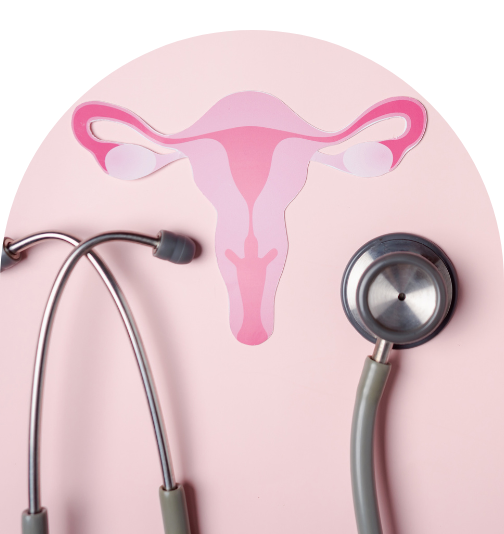A Holistic Path to Enhancing Fertility
Polycystic ovary syndrome (PCOS) is a prevalent hormonal disorder affecting millions of women worldwide. As a board-certified medical practitioner specializing in functional medicine, I have witnessed the profound impact PCOS can have on fertility and overall health. In collaboration with my colleague, Dr. Christina, we have developed a comprehensive program at our functional medicine practice to address the multifaceted nature of PCOS and optimize fertility outcomes.
Understanding PCOS
Polycystic ovary syndrome (PCOS) is a complex hormonal disorder that affects the reproductive system. It is characterized by a combination of symptoms, including irregular or absent menstrual periods, high levels of androgens (male hormones), and the development of multiple cysts on the ovaries. These cysts are actually immature follicles that have not released an egg during the menstrual cycle.
The exact cause of PCOS is still not fully understood, but it is believed to involve a combination of genetic and environmental factors. Insulin resistance, a condition in which the body’s cells become less responsive to insulin, is often present in women with PCOS. This leads to higher levels of insulin in the blood, which in turn can cause the ovaries to produce more androgens.
PCOS and Fertility
One of the significant challenges women with PCOS face is related to fertility. The hormonal imbalances and irregular ovulation associated with PCOS can make it more difficult to conceive. In some cases, PCOS can cause infertility or increase the risk of miscarriage.
Conventional medical treatments for PCOS primarily focus on symptom management rather than addressing the underlying causes. These treatments often involve hormonal birth control pills, anti-androgen medications, and insulin-sensitizing drugs. While these interventions can provide temporary relief, they often fail to address the root causes of PCOS and may have side effects.
Taking a Holistic Approach
At Reimagined Health, we believe in a functional medicine approach to PCOS treatment. Our program goes beyond symptom management, aiming to address the underlying causes and restore hormonal balance. By taking a personalized and comprehensive approach, we strive to optimize fertility outcomes and improve overall well-being.
Our Approach
Our proprietary 4R Fertility FormulaTM program begins with a thorough evaluation of each client’s story, hormonal profile, and metabolic function. We analyze personal medical histories to gain insights into individual biochemistry and tailor the treatment plan accordingly.
- Nutrition plays a crucial role in managing PCOS. Research shows that the role of nutrition plays an important part in the management of polycystic ovary syndrome (PCOS). A review of studies investigating the impact of various dietary interventions on PCOS-related outcomes indicate that specific dietary approaches, such as low glycemic index/load diets, Mediterranean-style diets, and calorie-restricted diets, can improve insulin sensitivity, hormonal balance, weight management, and menstrual regularity in women with PCOS. Studies highlight the significance of personalized nutrition strategies as an integral part of PCOS management, emphasizing the potential of dietary modifications in optimizing health outcomes for women with PCOS.
We emphasize a whole foods-based diet, rich in nutrient-dense, anti-inflammatory foods. Our clients receive personalized dietary recommendations to support hormonal balance, regulate insulin levels, and reduce inflammation. In some cases, targeted supplementation may be recommended based on individual test results and nutritional deficiencies. These supplements can support hormone regulation, improve insulin sensitivity, and optimize fertility. We also address the importance of maintaining a healthy weight and consider food sensitivities and gut health.
- Lifestyle modifications are another vital aspect of our program. Stress management techniques, regular physical activity, and sufficient sleep are all essential for hormonal balance and overall well-being. One study by Lakshmi et al. did a meta-analysis to examine the effectiveness of mind-body interventions in improving fertility outcomes for women facing infertility. The authors conducted a systematic review and meta-analysis of studies exploring the impact of various mind-body interventions, including cognitive behavioral therapy, mindfulness-based stress reduction, and yoga, on psychological well-being, reproductive hormone levels, and pregnancy rates in women undergoing fertility treatment.
The findings suggest that mind-body interventions can significantly reduce anxiety and depression symptoms, enhance psychological well-being, regulate reproductive hormone levels, and increase pregnancy rates in women with infertility. The study underscores the potential benefits of incorporating mind-body interventions as adjunctive treatments to conventional fertility care, emphasizing their positive impact on psychological and physiological factors that influence fertility outcomes. Dr. Christina and I work closely with our clients to develop realistic and sustainable lifestyle changes that align with their individual needs and preferences.
We recognize the importance of addressing the mind-body connection in PCOS treatment. Stress and emotional factors can exacerbate symptoms, so we offer various mind-body techniques, including meditation, yoga, and counseling, to promote emotional resilience and balance.
If you’re trying to get pregnant and you struggle with PCOS, click here to watch our free, on-demand masterclass and discover the proprietary 4R Fertility Formula (TM) we use to help you get pregnant naturally or get better results with IVF and IUI.
Conclusion
PCOS is a complex hormonal disorder that can significantly impact a woman’s fertility and overall well-being. At Reimagined Health, we take a holistic approach to PCOS treatment, focusing on personalized care and addressing the underlying causes. By combining our expertise in functional medicine with a patient-centered approach, we strive to optimize fertility outcomes and empower women with PCOS to take control of their health.
If you are struggling with PCOS, remember that you are not alone. Reimagined Health is here to support you on your journey toward optimal fertility and overall well-being.
Each person is unique, and we can’t make any promises to you through this article. If you’ve been diagnosed with PCOS or you’re ready for a lifestyle revamp to prepare your body for conception, we want to hear from you and see if you are ready for our program. Click here to watch our free, on-demand masterclass and discover the proprietary 4R Fertility FormulaTM we use that has had an 85% success rate in helping couples achieve pregnancy naturally.








